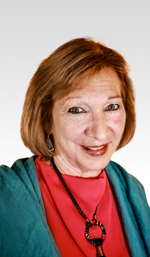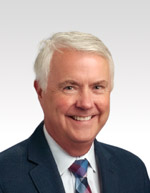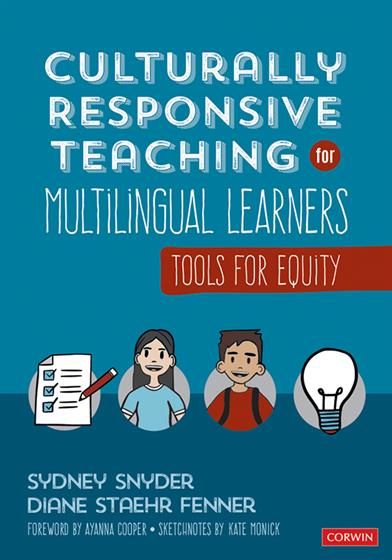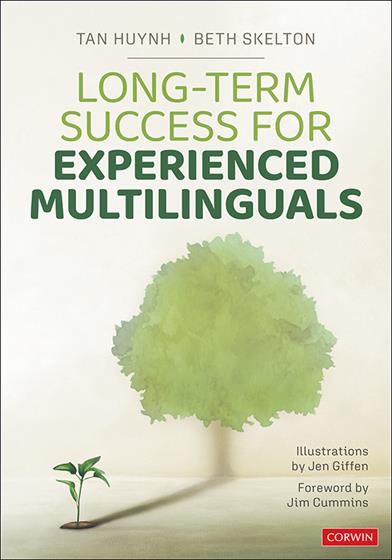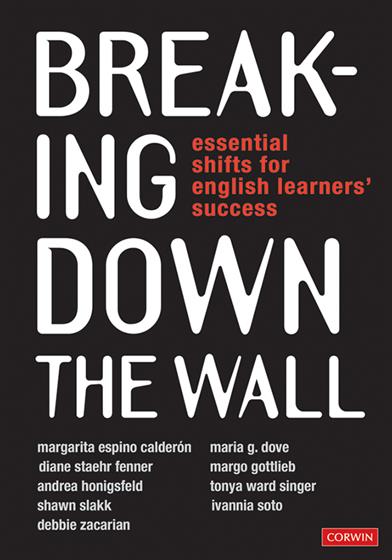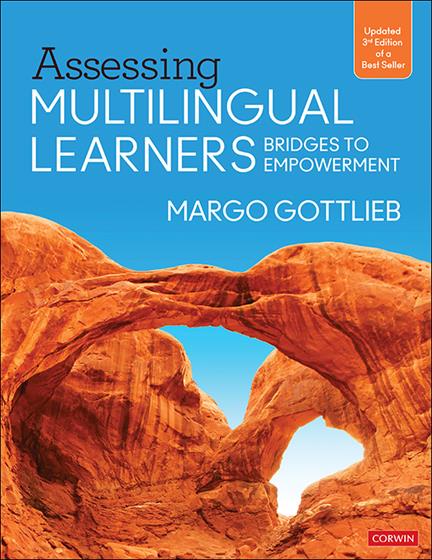Series 7 Leaders Coaching Leaders
[00:00:00.34] ANNOUNCER: Welcome to Corwin's Leaders Coaching Leaders podcast with host, Peter Dewitt. This podcast is from education leaders, for education leaders. Every week, Peter and our guests get together to share ideas, put research into practice, and ensure every student is learning, not by chance, but by design.
[00:00:20.38] TANYA GHANS: Peter, Season 7. We're here.
[00:00:23.35] PETER DEWITT: We are here, Tanya. It's so good to see you again.
[00:00:28.41] TANYA GHANS: Very good to see you too. Listeners should know whenever they listen to this right now, it's about 6 inches of snow outside my window, and so it's beautiful, but I'm glad I am inside talking to you and looking at it from the inside, as opposed to having to deal with it. How's the weather over there for you?
[00:00:47.83] PETER DEWITT: So the weather is, actually, I don't have any snow, and I'm upstate from you. It missed us and came to you. And I'm OK with that, believe it or not.
[00:00:58.92] TANYA GHANS: I don't mind taking it every once in a while. Let's not have it repeat itself, but we've missed some snow for a while, so I'm good with it for this time.
[00:01:08.83] PETER DEWITT: I was in Hawaii for work last week, and it was sunny.
[00:01:13.33] TANYA GHANS: Oh, yeah.
[00:01:14.59] PETER DEWITT: But I'm going to tell you a story though. So it was sunny, and I kept thinking, you know what, I don't have to be cold during the winter. It is a choice. I make a choice to be cold during the winter.
[00:01:26.70] TANYA GHANS: Sunning, yeah, I hear you.
[00:01:28.73] PETER DEWITT: And I was working with a principal that I work with at an elementary school, and down the road from the volcano, because I was on the big island. And we had a 6.3 magnitude earthquake when I was at the school.
[00:01:41.87] TANYA GHANS: So what is the comment on that one?
[00:01:45.49] PETER DEWITT: You know what's silly? I actually thought-- so she looked at me. There were two of us in her office, one from the complex area, that's what they call, basically, a district, and then the principal. And the buildings are not like we are used to in say, New York State.
[00:02:07.72] And we're pretty close to the main road, so this truck was going by, and things start to shake, and she said, welcome to Hawaii. And I thought it was just a loud truck that shook the building, but it didn't stop. And stuff fell off the walls, so we had to go down to the floor--
[00:02:25.96] TANYA GHANS: Oh, wow. Yeah, you said 6.3, right?
[00:02:30.28] PETER DEWITT: It was 6.3.
[00:02:30.82] TANYA GHANS: This is on a scale of 10, right?
[00:02:32.26] PETER DEWITT: Yeah, we're down the road 9 miles from the volcano, and so we hurry up and get up, and then we go, I follow her, and we start checking on kids, and we have to get them to the center and stuff. But yeah, the first time I've ever experienced an earthquake when I've been on the road, it was a 6.3.
[00:02:50.66] TANYA GHANS: That is amazing.
[00:02:52.23] PETER DEWITT: But I told them, I said, this story is going to look so different by the time I get home, because it's going to be my fish story.
[00:03:02.10] [INTERPOSING VOICES]
[00:03:03.85] TANYA GHANS: --and now it's buildings trembling.
[00:03:08.29] PETER DEWITT: I'm texting home saying, oh, my gosh, I barely survived. Yeah, but it was pretty incredible.
[00:03:16.37] TANYA GHANS: 6.3 is a legitimate experience.
[00:03:19.62] PETER DEWITT: So you can have snow and you can have sun, but you might get an earthquake with the sun.
[00:03:25.79] TANYA GHANS: Yeah, so there's some in-between ground there. I'm going to believe I can get sun without earthquakes. All right, so it's the buddings of your snowbird stuff coming out? Maybe the next time we do this podcast next season, you'll be someplace warm?
[00:03:41.95] PETER DEWITT: Yeah, because I was in Palm Springs for a weekend last month. It was probably the second time I've ever been, and I was calling home, and my partner was like, it is freezing. It is 5 degrees, and I said, we choose to be cold.
[00:03:56.07] TANYA GHANS: We choose to be cold. It is a choice.
[00:03:58.42] PETER DEWITT: It is 75 degrees, and I'm in shorts.
[00:04:00.58] TANYA GHANS: There are places all over the world like that. I know. All right, you and me both, brother. We're going to find some sun.
[00:04:08.21] PETER DEWITT: Wow. So how's that for a podcast interview?
[00:04:11.86] TANYA GHANS: How is that? Yeah, let's see how we segue this. Well, it's great weather, another great episode here on the Leaders Coaching Leaders podcast. Today, we have on a woman who can be, I think, described in many ways, but certainly, direct and clear about her advocacy for multilingual students.
[00:04:33.64] We will hear why it's important or maybe. She'll make you think about the labels you're using. If you still are thinking English language learner, you may want to rethink that, because words do have impact in our mindset. But a little background about Margo Gottlieb. That is her name, Margo Gottlieb.
[00:04:51.49] She has recently written a book, among many, but her latest is, Assessing Monolingual Learners, Bridges to Empowerment. She is a co-founder and lead developer of WIDA, which are standards for multilingual learners, I believe, also, TESOL standards, she's been a part in developing those. She was awarded a little while back, but significantly, an award for her contributions to the field.
[00:05:20.23] From TESOL, as I said earlier, has published extensively, and we are excited that we had her on today to talk about multilingual learners. She's one of those guests where her knowledge runs very deep on the topic, and you can feel that you're really talking to somebody that there is no question she hasn't pondered or thought about, no data she might not have at her fingertips about multilingual learners and what she really believes that they need and also, just the current status of the landscape today when it comes to students who are entering our schools. So a very timely conversation in that regard.
[00:06:02.10] PETER DEWITT: Yeah, and really, one of the things that I want listeners to really pay attention to is her philosophy around assessment, because it's very fluid and very holistic. And that doesn't mean it's not impactful. In fact, it's much more impactful with the way that she describes it, because she really focuses on the fact that assessment is not just about the students, it's about what we're learning, the growth that we are all making as educators and as students.
[00:06:31.51] So paying attention to that is going to be really important. I think that's, to me, one of the shining stars of the interview. Because the more we can get people to look at assessment in the way that she describes, I think the better off we'll be.
[00:06:46.19] TANYA GHANS: Yeah, humanizing this work is a big part of her approach, philosophy about how to do this better. Reminds me of Sharov faces on the data, like how important it is to really see who you're talking about when you do this work, that they're not numbers. So again, I think listeners will get a lot from this, and it's really going to speak to what a lot of people are talking about on the ground in our schools today. So we look forward to seeing you on the other end, and we hope you enjoy.
[00:07:21.67] ANNOUNCER: Did you know Corwin provides Visible Learning+ workshops led by some of the biggest thought leaders in education? Discover strategies from John Hattie, Fisher and Frye, and more, as they share evidence-based solutions for immediate impact in your classroom. Get started at corwin.com today.
[00:07:37.52] PETER DEWITT: Margo Gottlieb, welcome to the Leaders Coaching Leaders podcast.
[00:07:41.87] MARGO GOTTLIEB: Well, thank you very much, Peter. It's a pleasure to be here.
[00:07:44.89] PETER DEWITT: It's good to see you again. It's been a couple of years since we talked to you last.
[00:07:50.87] MARGO GOTTLIEB: I agree, it has. It's probably a pre-COVID time, even.
[00:07:55.55] PETER DEWITT: Oh, gee. That's--
[00:07:57.11] MARGO GOTTLIEB: We could imagine.
[00:07:58.52] PETER DEWITT: We have been doing this for a while. Wow. Well, thank you for making me feel old, so that's a good start to the podcast. So I'd like to talk to you about a variety of things, but your background is very rich, and you've got this diverse career from a language teacher to an international advisor and everything, the dash in between, which there's a lot of ground there. What brought out this primary passion to work with and advocate, really, for multilingual learners and their teachers?
[00:08:37.24] MARGO GOTTLIEB: That's such an interesting question. Part of it was born out of my scholarship in pursuing a PhD, which originally was to be an administration, but when I completed a program, I found that the institution did not grant that degree, so I switched over to evaluation research.
[00:08:57.63] And I was a bilingual teacher at the time for a very large school district, and that was my passion. It was just being with these children for multiple languages and cultures, and it excited me, and I wanted to do everything I could to support them. So I took this notion of evaluation research and directly applied it to assessment, because I thought that was an area that was misunderstood for multilingual learners.
[00:09:27.99] PETER DEWITT: Actually, I'd like to jump into that because you were absolutely right. So I'm working in some school districts as a leadership coach where they have a very high-- what they refer to as EL population, and they're going through assessments and things like that. So I really, I'm deeply interested in learning more.
[00:09:47.46] And I should tell you that the focus of our season, actually, is having a learner's mindset. So I definitely have a learner's mindset where you're concerned, and I'm looking forward to this. So you have a recent book that just came out, a bestseller, congratulations, and it came out in November, Assessing Multilingual Learners, Bridges to Empowerment.
[00:10:11.04] So talk to us a little bit about, you went from this evaluation to the whole idea of assessment. Can you talk a bit about that journey, and why did you do that?
[00:10:23.76] MARGO GOTTLIEB: I did it because I wanted to have a more personalized relationship with teachers and students and make them central to an assessment discussion. So multilingual learners, teachers, and even families had input in decision making. At that time, assessment was done to them, and considerations for multilingualism and multiculturalism were scant, at best. So that motivated me more than anything else. I saw the value in multilingualism and multiculturalism, and I wanted it to be embedded within the assessment experience.
[00:11:07.53] PETER DEWITT: So talk to us a little bit about the assessment experience, because I actually do find that assessment is still done to students, especially when we're talking about things like LCAP and those kind of things in California specifically that I've come in contact with over the past few years. And there's always this fear. And also, we find that EL students tend to be in that discrepancy piece, where schools get put on State report cards because they're not meeting the needs of their multilingual learners or their EL students. So talk to us a little bit about what that assessment could look like and what your book focuses on.
[00:11:52.12] MARGO GOTTLIEB: I would say more than anything else, we need to have a more balanced system. It can't be dominated just by standardized tests. Standardized tests gives us scores, it gives us labels, it gives us data to use for large-scale groups of students. It doesn't help with individual students. It isn't very helpful for teachers. We need to complement these large-scale measures that are mandated.
[00:12:21.13] I mean, that's part of federal law. We all realize it, and you can gain information from it, but what happens in the classroom every day is geared towards learning, not towards outcomes. So there's a different purpose. It's not for accountability, it's for growing and learning and engaging in each other, students engaging with other students and with teachers to form relationships and to glean ongoing information about what students can do.
[00:12:57.22] PETER DEWITT: And I like that. It certainly fits in with the whole theme of the show this season, having the learner's mindset. One of the trends that I've seen quite a bit lately over the past-- I would say year is that of empathy interviews, where they're interviewing students, asking what are the barriers to your learning. And they're, obviously, doing it in a very age appropriate, developmentally appropriate way.
[00:13:18.77] But they're really trying to get an understanding-- kind of fits in with what you're saying. They're trying to gain an understanding of where the learners feel like they learn best and what the barriers are. Now, are those some of the things that you're also looking at?
[00:13:32.78] MARGO GOTTLIEB: Sure. I'm looking at whatever ways that we can have conversations with our multilingual learners so they become empowered and agents of their own learning. And so I've built a model over the years. It's really looking at assessment as for and of learning, where we look at the different types of assessment, the different forms of assessment, the different purposes and look at them as pieces of a puzzle that we can put together so that teachers and students can build upon each other's strengths in order to grow.
[00:14:16.38] PETER DEWITT: So one of the things I was thinking of when you were just saying that with the assessment piece is, we as educators don't always-- I mean, I think we think we know about assessment, but I don't think maybe, we understand all of the nuances of assessment. So how is this book different from other books on equity, and how does it help from an assessment standpoint, shift the mindset of educators?
[00:14:46.34] MARGO GOTTLIEB: What I've tried to do is look at assessment as an extension of instruction. Not look at it as separate, but for example, I've worked with school districts with other colleagues in forming a linguistic and culturally sustainable curricular framework within which assessment operates.
[00:15:13.75] And so we have students, first of all, they're given options. They have choices, and in having those choices, we always build in multi-modalities so they will be successful. Multi-modalities isn't an accommodation, so to speak. It's not an intervention, but it's part and parcel integral to instruction and assessment.
[00:15:36.70] And I think this whole notion of-- also, speak to in the book-- of multiliteracies and how that has become prominent in the literature, but yet, we have not seen it in assessment. So valuing multilingualism and multiculturalism and again, have that infused within instruction and assessment, not have it retrofitted after there is curriculum in place.
[00:16:05.67] PETER DEWITT: I remember one time, I was asking a teacher some questions after they went through a PDSA cycle, and I asked what they learned about students. And they said, they mentioned they couldn't do this content, but now, they can. And I asked the teacher, what did you learn about your own teaching practices, and they said, oh, I don't know.
[00:16:27.02] And I always looked at assessment as not just learning about what the students know, but what do I know about my own teaching, what am I learning to actually improve on, and how is this having an impact on how I deliver content in the future. And it sounds like that's really what you want to be able to do when it comes to assessment as well. See people, you want people to see it as a natural part of teaching.
[00:16:55.16] MARGO GOTTLIEB: Correct. Right. That it is authentic. With assessment for learning, it's built around a feedback cycle, and the feedback is to improve both teaching and learning. It's mutually exclusive, and it's to empower teachers as much as to empower students.
[00:17:18.62] PETER DEWITT: Why do you think people don't have that mindset now or some people don't have that mindset, that assessment is fluid and a part of this cycle? Why do you think that happens?
[00:17:31.08] MARGO GOTTLIEB: Well, for multilingual learners, it's still very monolithic. We look at, you only can measure assessment in English because that is the goal of education, and I would think we need to shift that and embrace multilingualism and multiculturalism.
[00:17:56.80] PETER DEWITT: What would you say is unique about assessment for multilingual learners? Is it the monolithic part of it, or are there more unique aspects to this?
[00:18:08.60] MARGO GOTTLIEB: Anybody who's working in multilingual education will tell you that multilingual learners have so many assets, resources that they can bring to both instruction and assessment, and they're not being tapped. And so the full potential of our multilingual learners is left at the door. Because if they're only being able to use English as a communicative mode, then we've lost the idea that we're looking at a whole child. It's only half the child or a third.
[00:18:42.82] PETER DEWITT: I know you've given a lot of examples, but from a scenario standpoint, I talk to you a little bit about that teacher that was going through the PDSA cycle, but in your experience that you've had, what are some of the best examples you have of how this looks? Are there any stories that you've learned from, where you can offer maybe one or two scenarios on what this looks like, where you've seen it working really, really well in a classroom or school?
[00:19:17.19] MARGO GOTTLIEB: I can't think of one, per se, but whenever you walk in a classroom, you can tell that the students are valued, that the classroom climate is such that they feel like they're a community of learners, because their languages and cultures and original work is plastered all over it. And when students have opportunities to interact with each other, they have their choice of languages, and that's captured as part of the assessment. Even though the teacher may be monolingual, that doesn't mean she should negate that multilingualism to her students, which they will thrive on. I mean, the data show that.
[00:20:02.41] PETER DEWITT: Yeah. So talk to us a little about-- your the co-founder and lead developer of WIDA. So can you talk to people who might not know what WIDA is and what it does? What's the work that WIDA does?
[00:20:15.79] MARGO GOTTLIEB: WIDA is a Consortium States that was grown out of the original enhanced assessment grant that came with no child left behind, so we just had our 20th year anniversary-- hard to believe. We started as a Consortium of three States, and now we're up to 41 different States, territories, agencies across the country.
[00:20:40.29] We're very proud of our can-do philosophy. We've always looked at curriculum, instruction, assessment, standards, research through this multilingual lens, as looking always in a positive light. So we've become, hopefully, very trusted in any teacher who serves multilingual learners.
[00:21:07.64] We also have designed English language development standards, Spanish language development standards, frameworks for each of those, as well as a large-scale assessment test and interim test for English language proficiency.
[00:21:24.88] PETER DEWITT: So you were recently honored by-- I'm probably not going to pronounce this correctly, because it's an acronym-- but TSOL, T-S-O-L?
[00:21:34.99] MARGO GOTTLIEB: Oh, that was a while back.
[00:21:36.77] PETER DEWITT: That was a while ago, so looking ahead, what are, do you think, are some emerging trends that you think will shape that work in the next decade or so? What are you hoping for?
[00:21:51.19] MARGO GOTTLIEB: I hope with one of the trends is the growing and growing, ongoing, growing multilingual population here in the United States. If we ever can resolve the migration issue to really think about how we can advantage all persons who come to our country by tapping their languages and cultures in some way, resources through libraries, through community organizations, it doesn't have to be the sole responsibility of schools, and assessment data starts with a portrait of a child.
[00:22:34.35] We have to know who these children are and what they can do in their multiple languages, what has been their continuity of educational experiences, how they can bring that to the fold, and what our expectations can be for both language and content.
[00:22:52.02] PETER DEWITT: So this seems to be a very polarizing conversation. Sometimes you're laughing. You were wondering when I was going to get there. It is. It depends on the State you go to, and we both travel quite a bit. This seems to be a polarizing conversation in some States, where teachers really don't want to do anything about it.
[00:23:18.72] Because they're worried about what they're going to step into. Does that ever come up in the work that you're doing, and if so, how do you help people see beyond the political side of it and more about the human and child side of it?
[00:23:34.97] MARGO GOTTLIEB: And I think you touched a very important point. What I've tried to do through my books is humanize assessment, make it real for all persons. And if you are a teacher, you have the responsibility of teaching each and every child. You can't be selective in who you're teaching or where you're teaching, necessarily.
[00:24:03.16] So I think it's really important for teachers to really think about where are these students coming from? Look at the advantages they can bring, even though they may have suffered through traumatic experiences, and that's where the empathy comes in. It's our responsibility to educate these children the minute they walk across the border. I would hope that teachers really think about the students and their families and do the best they can.
[00:24:43.95] And they're difficult circumstances for teachers. They have a tremendous amount of work to do. There's always new initiatives, but they are to serve the students first. I would think that would be most important.
[00:24:59.70] PETER DEWITT: Yeah, I often find that when you go to some States where they don't want people to have this conversation, when you get into a closed room, this is the kind of conversation that people definitely want to have. Because you're absolutely right, what is at the core of a teacher and hopefully, school leaders as well is the idea of wanting to help every child, regardless of where they came from.
[00:25:20.66] MARGO GOTTLIEB: And be supportive, sure.
[00:25:22.86] PETER DEWITT: Yeah. And I think the monolith part that you talk about, so many different times that comes up, and not everyone is within that monolith. And we have to understand that everybody comes in with their different stories, so I think the work that you're doing is hugely impactful.
[00:25:43.29] Because we're focusing on this idea of the learner's mindset, in your career, what have you learned? You went to get your PhD and you did all this work, but what have you learned along the way?
[00:25:57.29] MARGO GOTTLIEB: I've learned that it's hard work. It's very complex. You can't make any predictions. You have to do the best you can all the time. And you have to be welcoming.
[00:26:17.42] PETER DEWITT: So before we end, what are three things you want people to take away from your book, your latest book? Because you have a lot of books, so why don't we say that? What are three things you want people to walk away with? And I'm sure there are some things that you've said before, but maybe they're worthy of saying them one more time before we leave each other today.
[00:26:45.95] MARGO GOTTLIEB: Three things is that, number one, I think that we are doing a better job-- and I've tried to accentuate this in the book-- of integrating content, language, and culture. I think that the notion of having independent domains, such as listening, speaking, reading, and writing are no longer functional. We live in a multimodal, multicultural, multiliterate world, and if we don't grasp this notion of having technology as part of the equation, we're going to lose the next generation of students, whoever they are.
[00:27:36.68] And so we need to incorporate this whole, not only AI, the whole technology explosion and use that to benefit teaching and learning. I think that's two. I need one more, right?
[00:27:54.55] PETER DEWITT: Well, I mean, if you have one more, I'm sure you do.
[00:27:58.93] MARGO GOTTLIEB: To look at what we do every day is assessment, because it is. Every time we observe students, we're collecting data, and we're acting on it. Every time we give students the option of looking at what they have done and to compare my work in September versus my work in January, we're giving students that opportunity to build their own identities, and that's so critical.
[00:28:31.12] PETER DEWITT: I think one of the things that I love about the work that you do is that over the decades, assessment has become a bad word, because people equate it to standardized tests or things like that. And I think the way you look at it is such a healthy way of looking at it, because it's holistic and human, and it's about growth, and I appreciate that about the work that you're doing.
[00:28:54.43] MARGO GOTTLIEB: Well, thank you so much.
[00:28:56.37] PETER DEWITT: So Margo Gottlieb, thank you for being a guest on Leaders Coaching Leaders podcast.
[00:29:02.29] MARGO GOTTLIEB: And Peter, it's been a delight speaking with you, as always. I thoroughly enjoyed it.
[00:29:10.30] TANYA GHANS: So Peter, what do you think?
[00:29:13.31] PETER DEWITT: I really enjoyed the conversation. It's a hard conversation sometimes, because as the interviewer, I'm really coming in as a learner. I always do. You and I've talked about this a lot, and that's the focus of the season.
[00:29:34.10] So sometimes you're using language that a school uses that might not be the way that experts, like Margo, want you to be able to start thinking. And the multilingual learners is a much more, I guess, a healthier way of looking at it. And it's also sad because it comes with this kind of political polarization that's happening, so we dove into that a little bit.
[00:29:57.92] But I think overall, for me, the takeaway I have is to keep the momentum going when we're talking about how assessment should be used. Because I think what she was talking about with multilingual learners, we could certainly look at with any culture or race or sometimes gender when we're focusing on assessment. It really has to come down to the fact that assessment is about growth, and it is not about a monolith kind of story, where we make wild assumptions. And so that part, I hope, people really take away.
[00:30:37.16] TANYA GHANS: Yeah, so, so, so important to stay away from the monolithic thinking. People are just so complex and they're individuals. Granted there's a place to think about groups, but there's a place where there's the only way that you get the right information is to see the actual person standing in front of you.
[00:30:58.47] I also agree with your point about the polarization of language. It's just very frustrating how much that seems to be getting in the way of solutions. I do hope we turn a corner on that soon here in this country and maybe in other places.
[00:31:13.74] Thinking more closely about what Margot was speaking about, I think her idea about it's important not to try to retrofit things to existing-- whatever it is-- tasks, concepts, whatever tool it is that you might be using. Because whenever you do that, you usually or often, you need to be mindful that what you're adding to. It always has this secondary feel to it or this substandard feel.
[00:31:41.58] We don't want to reinvent the wheel, but you do have to think about starting from the beginning if you're trying to embed some new ideas that you believe in. And so with assessment, I heard her saying that, that its' not just a matter of taking what you've always had and then trying to tack on these things to it, because it's the newest wave. It's really important to--
[00:32:03.27] If it's going to be worth your time and authentic, you want to make sure you're doing the work to make it a natural fit, whatever additions you're adding to this. So that's one thing that stayed with me, and I always try to look for those when we're in these sessions as a learner right alongside both of you.
[00:32:23.54] PETER DEWITT: Yeah, she definitely gave me a lot to think about.
[00:32:26.64] TANYA GHANS: Yeah, this is a good conversation. Lots of information. Margo is a really good resource, and I think people are going to see that, if they don't know her work already, she's a good place to go to, to just get the latest and high quality and information about assessment.
[00:32:47.43] PETER DEWITT: Well, Tanya, as always, we want listeners to tell us what they think. We've had the luxury of time since the last season, where I've got to meet a lot of people that are listening to the podcast. So keep those comments coming and follow us and give us feedback. And even if you think there are guests that you think we should be interviewing, we're always open to that kind of stuff too.
[00:33:12.04] So Tanya, it's always good to see you.
[00:33:14.17] TANYA GHANS: Absolutely. Always great learning alongside of you, Peter. Until next time.
[00:33:18.25] PETER DEWITT: Until next time.

